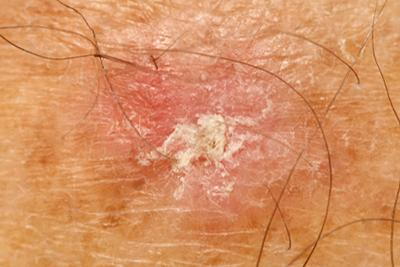
Actinic Keratosis Progression: Monitoring Changes and Seeking Prompt Treatment
Do you suspect that you may have Actinic Keratosis (AK) but are unsure of the cause of your dry, scaly skin?
Dr. Clifford Lober in Kissimmee & Ocoee FL, can help identify actinic keratosis and other skin issues and maintain your good health. A board-certified dermatologist for over forty years in the Central Florida area, Dr. Lober is awaiting a phone call to help you.
What is AK?
AK is skin characterized by rough, scaly, dry patches that can lead to a type of cancer called Squamous Cell Carcinoma. These dry patches are the most common skin precancer and result from poor skin protection while in the sun.
For this reason, this type of rough skin is also called Solar Keratosis. Certain people with the characteristics listed below are more at risk of developing AK.
- Redheads or Blondes
- Very light-complexioned people are more at risk.
- Blue or green eyes
- People with weakened immune systems from pre-existing conditions such as cancer
- Those with a history of severe sunburns
AK can take on a bumpy appearance that is usually skin color but can be pink, red, or gray. These bumps may also have a brown or yellow crust on the top.
Dr. Lober in Kissimmee & Ocoee FL, explains the symptoms of AK as follows:
- Growths that resemble horns
- Bleeding and itching
- A burning or stinging sensation
- Tenderness or pain
Diagnosis and Treatment Of AK
The only sure way to diagnose AK is to have our dermatologist check the area's appearance. Sometimes, this involves taking a small biopsy of the area and examining the cells under a microscope.
After diagnosis, our doctor can do several things for AK to ensure a minimal risk of developing cancer.
- Chemical Peels: The chemicals in the peel destroy the first layers of skin, thereby destroying the AK
- Photodynamic therapy: Using special creams and light therapy destroys precancerous skin cells
- Excision: Our dermatologist may choose to cut out the patch of questionable skin cells
- Cryotherapy: Freezing the affected tissue will cause it to crust up and fall off, leaving new skin underneath
Taking extra special care of your skin after treatment may include always wearing sunscreen outdoors, avoiding the sun during the highest UV hours (10 am—3 pm), and wearing breathable but concealing clothing while outdoors.
Schedule Your Appointment Today!
Clifford W. Lober, with offices in Kissimmee and Ocoee FL, looks forward to your appointment to discuss actinic keratosis. Call us today at either of our office locations for healthier-looking skin.
Kissimmee, FL, 407-846-7166 or Ocoee, FL, 407-656-9700.